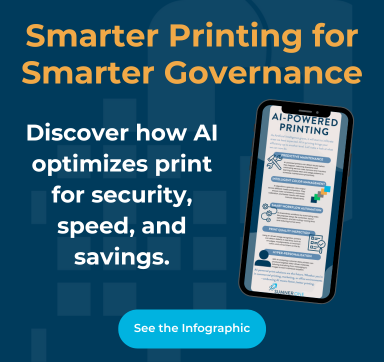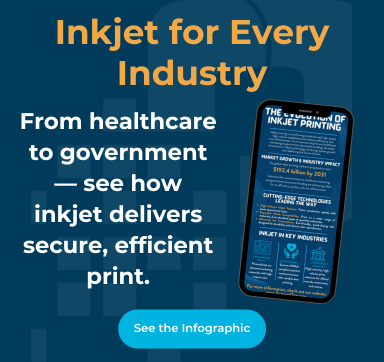We’re all looking for the secret to long-term business success. What is the key to keeping our organization safe from the next, big economic downturn? (2008 seems like a long time ago, but business owners are still feeling the effects.) How can I preserve what I’ve built? How can I protect my 100 employees—or more—from job loss or underemployment? I’ll tell you something a secret—there is no secret.
Anne-Marie Bonneau, famous Zero-Waste Chef, regarding both sustainability and how citizens need to make changes, says, “We don’t need a handful of people doing zero waste perfectly. We need millions of people doing it imperfectly.” When thinking about this quote and how it can be applied to small business ideas, the takeaway is that small business leaders need to be thinking about the small things they can add to their existing business plans that will bolster and help fortify their offerings. What they shouldn’t be holding out for is a blanket solution that will automatically protect them. There’s no rescue from planning for risk management for years to come.
One thing small business owners can do, either perfectly or imperfectly, is train themselves and their employees through professional certifications. There’s no shortage of professional certifications available, and many are available to take online, at one’s leisure. But how to choose which one(s) to take? The main questions when choosing which certifications to take yourself or to offer to employees, are: which are most applicable to my business over the long term? How will this certification offer the most to my current employees and my business overall? Will offering this certification attract future employees?
Keeping these questions in mind, here are 5 certifications that are in high demand as we head into 2020.
1. Project Management Professional (PMP)
If you bring projects to completion, you can derive value from a PMP certification, whether you have “project manager” in your job title or not. The PMP involves a certification exam, but even getting to that step is a lot of work. In order to be eligible to earn a certification, certain prerequisites must be met. Candidates can either complete a secondary degree, 7,500 hours leading and directing projects, and 35 hours of project management education; or complete a 4-year degree, 4,500 hours leading and directing projects, and 35 hours of project management education.
2. Certified Associate in Project Management (CAPM)
Perhaps you’re not ready for the full PMP exam—you, or your employees, are new to project management. The CAPM (available through pmi.org—Project Management Institute’s website) is the certification for up and coming project managers. Much like the PMP certification, there are prerequisites—a secondary degree and 23 hours of project management education. PMI.org offers an online course that contains this certified information and will fulfill the requirement.
3. Certified Business Analysis Professional (CBAP)
Business analysis is a daunting umbrella term that involves identifying and determining solutions to business problems. Problems can range from issues with software and information systems to understanding how to improve processes. The CBAP certification is geared for workers with experience in business analysis and product management. The eligibility requirements for CBAP are listed on the CBAP website.
If you or your employees aren’t experienced yet in business analysis but are instead looking to gain additional experience, iiba.org offers several levels of certification, including an Entry Certificate in Business Analysis (ECBA) and a Certificate of Capability in Business Analysis (CCBA). The latter certification demonstrates a mid-level understanding of business analysis with a willingness to learn more.
4. Certified Supply Chain Professional (CSCP)
Supply chain management involves careful organization and supervision of many moving parts. Certified professionals in this discipline have unique qualities in maintaining efficiency of both time and costs. If your small business deals with a network of suppliers, distributing, creating, or building products that are shipped to your buyers, this certification can help streamline this process on the small-business side.
The CSCP certification is built on APICS (American Production and Inventory Control Society) standards, and the details of this program can be found here. Much like the other certifications on this list, there is an exam and a pre-requisite eligibility application.
5. SAP Certified Application Associate—CRM
That’s a lot of acronyms, but in a nutshell, this certification is all about understanding a software program (called SAP—systems, applications, and products) and having basic knowledge of Customer Relationship Management (CRM). Understanding this program will help you and your employees grasp customer engagement and experience in new ways.
If your company doesn’t use SAP, however, you could also get a certification from its biggest competitor, Salesforce. Salesforce is a CRM with several different certification tracks, depending on your job role—administration, developers, and more.
Is this an exhaustive list of all the certifications available? There are tons more. One that didn’t make the top five that is worth checking out—Google Analytics Certification—is perfect if you’re working to develop your business’ online or social media presence.
Some other places to search for applicable certifications and online learning are LinkedIn (Lynda.com), Khan Academy, and Microsoft Learn.
There are a million small businesses out there, and all of them are looking for the next, best way to eliminate barriers to entry. A great way to give your organization a competitive edge is to continue to train and invest in yourself and employees.Even with so many options in certification and training available, it is still difficult to handle everything on your own. By partnering with a Managed Service Provider like SumnerOne, you get access to a knowledge base full of the best minds in IT, Print, Document Management, and more.
Contact us today for a complimentary assessment of your small business.
 FREE EBOOK DOWNLOAD
FREE EBOOK DOWNLOAD
















